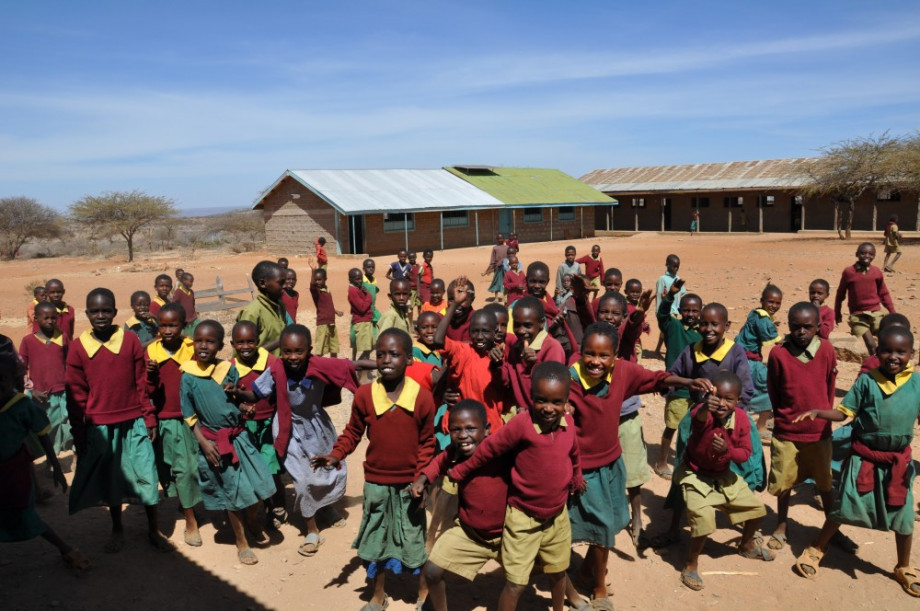In the Blog
A Long Fight Ahead: 160 Girls Demand Justice in Kenya
by Melissa Reiter
It’s called the virgin cure - the pervasive myth that sex with a virgin will cure HIV/AIDS. The younger the virgin, the more potent the cure. In eastern Kenya, 160 Girls, all victims of rape, are determined to seek justice. The girls range in age from 3 to 17. Many of the girls were raped by family members and men in their own communities. Many were raped by HIV positive men because of the myth of the virgin cure. In Kenya, a woman or girl is raped every 30 minutes.
“People often assume that the 160 Girls project is a story of violence and oppression,” says Fiona Sampson, Executive Director of The Equality Effect, “and it is definitely a story of oppression. But, I think especially having worked more and more with the girls over the last two years…it is apparent to me that it is a story of transformation and empowerment.”
Sampson and The Equality Effect, an international network of human rights advocates – including artists, musicians, film makers, health care workers, journalists, lawyers, teachers, students, judges and parliamentarians - have been working tirelessly to find creative ways to use the law to achieve justice for these and other girls. Canadian filmmaker Andrea Dorfman created a short film about the project.
In Kenya, social worker Mercy Chidi and her team at the Tumaini center in Meru, Kenya help the girls with counseling, legal and medical support. Tumaini is the Swahili word for hope. Chidi and Sampson met at a workshop on human rights at the University of Toronto in 2010. When Chidi told Sampson about her experiences with the failings of the Kenyan justice system, the 160 Girls project was born.
The failure to protect girls from rape in Kenya has little to do with a lack of laws. Kenya’s new and substantially improved constitution was enacted in 2010 and drafted with the help of Canadian and South African legal scholars. It provides for rights like equality before the law, security of the person and freedom from discrimination based on sex. This all looks great on paper, but these rights are not enforced.
A significant obstacle to the enforcement of these laws has been the Kenyan police. If and when the girls report their rapes or “defilements” as they are known under Kenyan law – a problematic term that also applies to the damage of personal property – they are re-victimized. They are told that they must have invited the rape or enjoyed it. They are told by police that there are no resources to investigate the crime and made to pay to file free government forms. There are cases where the girls are raped again by the police when they report the crime. “When we started doing this project,” explains Sampson, “we asked the girls what their words for justice were … their experiences with justice and what justice means to them. They couldn’t answer the question; they didn’t know what justice was.”
This, however, is only the beginning of the girls’ story. On October 11, 2012, the first International Day of the Girl Child, the 160 Girls and The Equality Effect filed a claim again the Kenyan state. It is the beginning of a legal battle to get the Kenyan state to enforce its laws and to show that girls will not stand idle while rapists continue to violate their rights with impunity.
On the day of filing, many of the girls took to the streets, chanting and singing, to declare what access to justice means to them. Sampson describes the experience: “Seeing those girls physically so empowered … really engaged in and having the opportunity to demonstrate their agency and their right to take to the streets and to communicate with their communities [about] their human rights was really powerful.”

Fiona Sampson
The experience of filing their claim against the Kenyan government has already helped the girls see what they can accomplish. At the end of the filing date, one of the girls who had been raped by a police officer – and had a baby as a result – described her experience to Sampson. “She turned to me and she said ‘I think that was the best day of my life. I want to do this when I grow up. I want to be a lawyer and help other girls.’ It’s such a great demonstration of how far the girls have come. Now they want to be human rights lawyers. They have really engaged in the process and benefited from it.”
Though they have a long fight ahead of them, there is no doubt that they have already made an impact on the Kenyan justice system, on cultural taboos against speaking out about sexual assault and on each person who has heard their stories. Sampson is confident as she looks towards the future: “[This case] is grounded in a terrific story of appalling violence but it’s all about the future and change. It’s really a very positive story.”
Melissa Reiter is corporate/commercial lawyer at Koskie Minsky LLP in Toronto. Her typical day involves anything from working with start-ups to advising some of Canada’s largest pension funds on a wide range of complex commercial and investment matters. She has been working with The Equality Effect since 2010 and acts as Honourary Counsel to Water for People - Canada, a charitable, nonprofit, international humanitarian organization dedicated to the development and delivery of clean, safe water and sanitation solutions in developing nations. When she was 5, she had the deed to her Barbie Dream House notarized. Follow her on Twitter @MelissaReiter.



